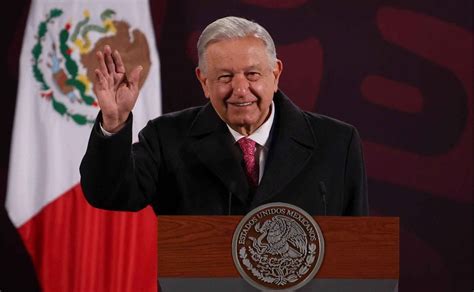Honduras is a mountainous country located in Central America, bordering Guatemala, El Salvador, and Nicaragua. It covers an area of approximately 112,090 square kilometers (43,280 square miles) and boasts a rugged coastline along the Caribbean Sea and the Pacific Ocean.
Cuba, on the other hand, is the largest island in the Caribbean, situated just south of Florida. With an area of 109,884 square kilometers (42,426 square miles), it is slightly smaller than Honduras. Cuba is characterized by flat plains in the west and a mountainous region in the east.
Population


As of 2020, Honduras has a population of approximately 9.9 million people, while Cuba has a population of approximately 11.3 million people. Both countries have relatively high population densities, with Honduras having a population density of 88 people per square kilometer and Cuba having a population density of 103 people per square kilometer.
Economy
GDP and GDP Per Capita
According to the World Bank, Honduras’ gross domestic product (GDP) in 2020 was estimated at $26.1 billion, while Cuba’s GDP in 2020 was estimated at $112.5 billion. In terms of GDP per capita, Honduras trails Cuba significantly, with a GDP per capita of $2,594 compared to Cuba’s GDP per capita of $9,909.
Major Industries
Agriculture, mining, and remittances are the main pillars of the Honduran economy. The country is a major producer of coffee, bananas, and beef. Cuba, on the other hand, has a more diversified economy, with tourism, agriculture, and sugar being the most important industries.
Unemployment

Honduras faces a persistent unemployment problem, with an unemployment rate of approximately 5.2% in 2020. Cuba, on the other hand, has a relatively low unemployment rate of 2.2% in 2020, largely due to its government’s emphasis on social welfare programs.
Social Development
Health
According to the World Health Organization (WHO), Honduras has a life expectancy of 72.4 years, while Cuba has a life expectancy of 78.6 years. Cuba’s healthcare system is highly regarded and provides universal access to healthcare for all citizens. Honduras, on the other hand, faces challenges in providing adequate healthcare to its population, particularly in rural areas.
Education
Both Honduras and Cuba have made significant progress in education. Honduras has a literacy rate of approximately 94%, while Cuba has a literacy rate of over 99%. However, Cuba’s educational system is considered superior, with students consistently performing well in international assessments.
Poverty
Honduras is one of the poorest countries in the Americas, with an estimated 59.3% of the population living below the poverty line. Cuba, on the other hand, has been able to significantly reduce poverty, with only 10.9% of the population living below the poverty line.
Political Systems
Government
Honduras is a democratic republic with a president serving as both head of state and head of government. Cuba, on the other hand, is a socialist state with a unitary dominant-party system. The Cuban Communist Party is the only legal political party in the country.
Human Rights
Honduras has a mixed record on human rights, with reports of extrajudicial killings, police brutality, and corruption. Cuba, on the other hand, has made significant progress in improving human rights, but there are still concerns about political repression and restrictions on freedom of speech and assembly.
Culture
Language
Spanish is the official language of both Honduras and Cuba. However, Cuba has a distinct dialect of Spanish known as Cuban Spanish, which is influenced by African and Caribbean languages.
Religion
Christianity is the dominant religion in both Honduras and Cuba. However, Cuba has a stronger influence of African religions, such as Santer├нa, than Honduras.
Music and Art
Both Honduras and Cuba have rich musical traditions, with each country contributing to the development of Latin music. Honduras is known for its Garifuna and punta music, while Cuba is famous for its son, salsa, and cha-cha-cha.
Comparisons and Contrasts
Metric
Honduras
Cuba
Geography
Mountainous, with coastlines on the Caribbean Sea and Pacific Ocean
Largest island in the Caribbean, with flat plains in the west and mountains in the east
Population
9.9 million
11.3 million
GDP
$26.1 billion
$112.5 billion
GDP Per Capita
$2,594
$9,909
Life Expectancy
72.4 years
78.6 years
Literacy Rate
94%
Over 99%
Poverty Rate
59.3%
10.9%
Government
Democratic republic
Socialist state with a unitary dominant-party system
Effective Strategies for Honduras and Cuba
Both Honduras and Cuba face unique challenges and opportunities in their quest for progress. Here are some effective strategies that each country can adopt:
Honduras
Improve governance and reduce corruption
Invest in education and healthcare
Promote sustainable economic growth
Address social inequality
Strengthen rule of law and reduce crime
Cuba
Continue to reform the economy and encourage foreign investment
Improve human rights and freedom of speech
Address the challenge of dual currency
Invest in renewable energy and sustainable agriculture
Enhance relations with the United States and other countries
Why it Matters and How it Benefits
The comparison between Honduras and Cuba highlights the complex interplay of factors that shape a country’s development. Both countries have their own strengths and weaknesses, and their experiences can provide valuable lessons for others.
For Honduras
Understanding Cuba’s success in reducing poverty and inequality can provide insights for Honduran policymakers.
Learning from Cuba’s strong healthcare system can help Honduras improve its own healthcare outcomes.
Studying Cuba’s experience with tourism can help Honduras develop its own tourism industry.
For Cuba
Examining Honduras’ democratic system can help Cuba improve its own governance.
Learning from Honduras’ efforts to combat corruption can help Cuba strengthen its anti-corruption measures.
Studying Honduras’ experience with economic diversification can help Cuba reduce its dependence on tourism.
Pros and Cons: A Comparative Analysis
Metric
Honduras
Cuba
GDP Per Capita
Pros: Higher GDP per capita can lead to increased living standards.
Cons: Cuba’s GDP per capita is much higher, but distribution of wealth is unequal.
Life Expectancy
Pros: Cuba has a higher life expectancy due to a strong healthcare system.
Cons: Honduras’ life expectancy is lower due to challenges in healthcare and poverty.
Literacy Rate
Pros: Both countries have high literacy rates, indicating a commitment to education.
Cons: Cuba’s literacy rate is slightly higher.
Poverty Rate
Pros: Cuba has significantly reduced poverty, leading to improved social welfare.
Cons: Honduras has a high poverty rate, which poses a significant challenge.
Government
Pros: Honduras has a democratic system, allowing for political participation.
Cons: Cuba’s government is characterized by a single-party system.
Human Rights
Pros: Cuba has made progress in improving human rights, but concerns remain.
Cons: Honduras faces challenges in upholding human rights, particularly in rural areas.
FAQs
1. Which country is larger in terms of land area?
Honduras is slightly larger than Cuba, with a land area of 112,090 square kilometers compared to Cuba’s 109,884 square kilometers.
2. Which country has a higher population density?
Cuba has a slightly higher population density than Honduras, with 103 people per square kilometer compared to Honduras’ 88 people per square kilometer.
3. Which country has a more diversified economy?
Cuba has a more diversified economy than Honduras, with tourism, agriculture, and sugar being the main industries. Honduras’ economy is heavily dependent on agriculture and remittances.
4. Which country has a better healthcare system?
Cuba has a highly regarded healthcare system that provides universal access to healthcare for all citizens. Honduras faces challenges in providing adequate healthcare, particularly in rural areas.
5. Which country has a higher life expectancy?
Cuba has a higher life expectancy than Honduras, due to its strong healthcare system, with a life expectancy of 78.6 years compared to Honduras’ 72.4 years.
6. Which country has a lower poverty rate?
Cuba has a significantly lower poverty
Source link : http://www.bing.com/news/apiclick.aspx?ref=FexRss&aid=&tid=6702f029facb4f6ea18bcbea7cd3f7f4&url=https%3A%2F%2Ftvserialupdates.com%2F202410048112421.html&c=1792618115736734766&mkt=en-us
Author :
Publish date : 2024-10-03 22:15:00
Copyright for syndicated content belongs to the linked Source.












